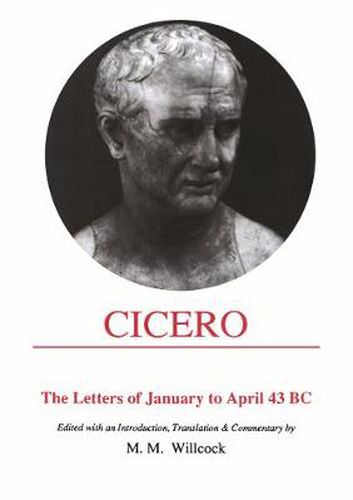Readings Newsletter
Become a Readings Member to make your shopping experience even easier.
Sign in or sign up for free!
You’re not far away from qualifying for FREE standard shipping within Australia
You’ve qualified for FREE standard shipping within Australia
The cart is loading…






This edition contains the thirty-three letters which survive from those exchanged between Cicero and his correspondents between the beginning of January and the end of April, 43 B.C. This was a key period of Roman history, when the forces of the Senate, supported by the precocious young Octavian, faced Mark Antony in north Italy, leading to the battle of Mutina (Modena) in April, and the defeat of Antony. The period has the dramatic quality of a tragedy, especially considering the events of the following months. Cicero, now aged sixty-three, is deeply involved in all the political actions, and in touch with most of the protagonists in the confused scenario. Cicero’s Letters are normally read, if at all, in selection. Continuous reading of all that survives from a given period is far more interesting, and puts the reader in close contact with the feelings and experiences of those who were living at the time.
$9.00 standard shipping within Australia
FREE standard shipping within Australia for orders over $100.00
Express & International shipping calculated at checkout
This edition contains the thirty-three letters which survive from those exchanged between Cicero and his correspondents between the beginning of January and the end of April, 43 B.C. This was a key period of Roman history, when the forces of the Senate, supported by the precocious young Octavian, faced Mark Antony in north Italy, leading to the battle of Mutina (Modena) in April, and the defeat of Antony. The period has the dramatic quality of a tragedy, especially considering the events of the following months. Cicero, now aged sixty-three, is deeply involved in all the political actions, and in touch with most of the protagonists in the confused scenario. Cicero’s Letters are normally read, if at all, in selection. Continuous reading of all that survives from a given period is far more interesting, and puts the reader in close contact with the feelings and experiences of those who were living at the time.